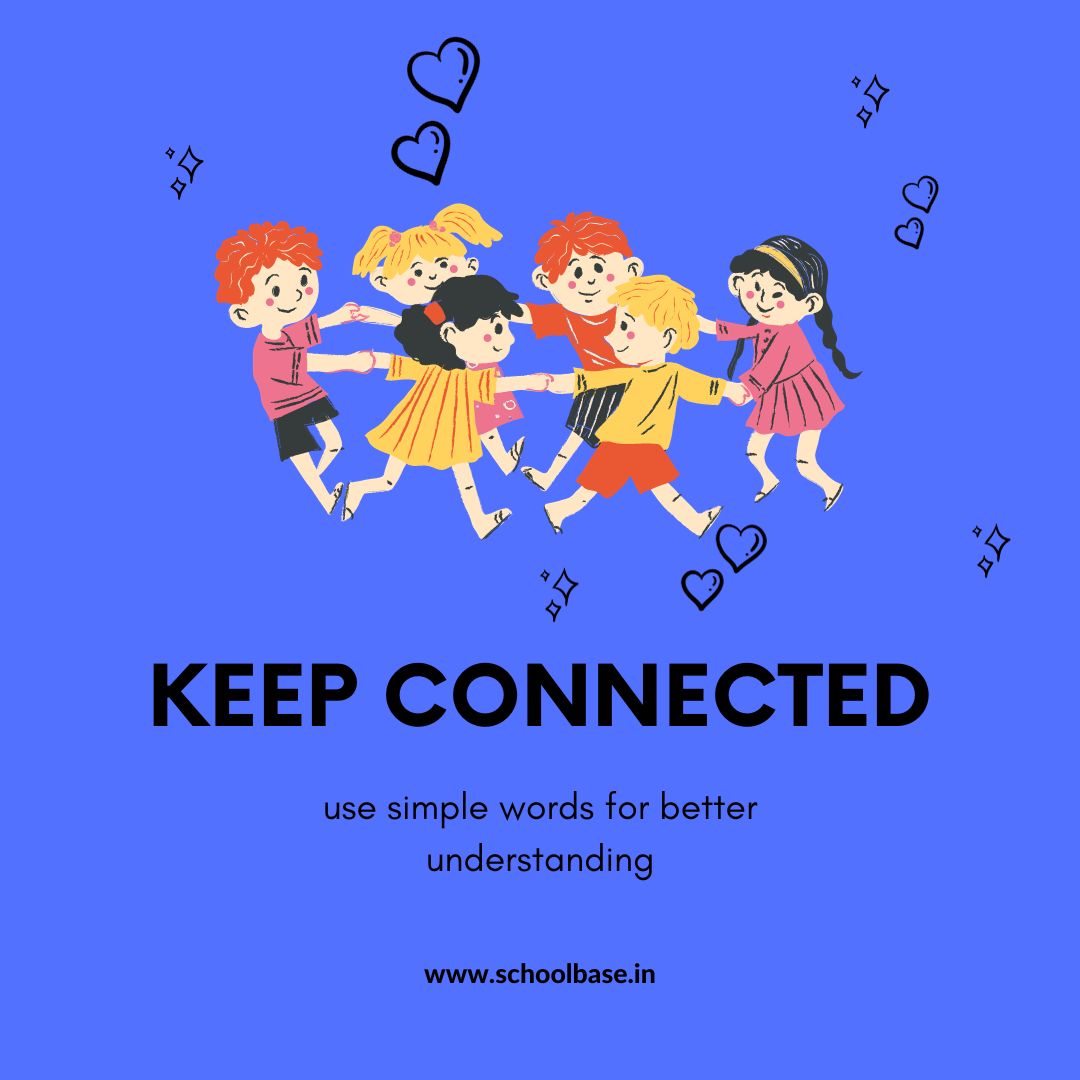
Effective linking with children is an essential skill for parents, teachers, and caregivers.
In today’s fast-paced urban Indian society, where families often juggle multiple responsibilities, it’s crucial to establish meaningful connections with the younger generation.
Effective communication with children is essential for several important reasons. In this article, we will learn why frequent communication with kids is essential and how to do it.
Why is Effective Communication with Children Important?

Effective communication with children is essential for several important reasons. First and foremost, it forms the foundation of a strong and nurturing parent-child relationship.
When parents, caregivers, and teachers communicate effectively with children, it fosters trust, respect, and emotional bonding, creating a safe and supportive environment for their growth and development.
Moreover, effective communication with children is crucial for their cognitive and emotional development.
It enables children to express their thoughts, feelings, and needs, promoting self-awareness and emotional intelligence.
When children can communicate openly, they are better equipped to handle challenges, solve problems, and make informed decisions.
Clear and engaging communication methods, such as storytelling and interactive discussions, enhance children’s understanding of various subjects and stimulate their curiosity, contributing to their educational success.
It teaches them respect, empathy, active listening, and how to express themselves in a constructive manner.
These skills not only benefit their relationships with others but also prepare them for success in a diverse and interconnected world.
The Art of Effective Communication with Children
In our busy lives, it’s easy to get lost in our thoughts and devices, but when communicating with children, being present is the key. Your full attention reassures them that they matter.
Children appreciate it when adults are genuinely interested in their thoughts, feelings, and experiences.
When your child wants to talk or share something, pause what you’re doing, look them in the eye, and listen attentively.
Let’s look at some of the other ways we can establish healthy conversation with our children.
Use Simple Language– Children may not understand complex vocabulary or abstract concepts.
Utilize straightforward child-friendly language that matches their age and cognitive development.
By using simple words and sentences, you’ll facilitate better understanding and more effective communication with your child.
Encourage Questions- Encouraging questions is a vital aspect of communication with children.
Children are naturally curious, and they learn through asking questions.
Encourage them to ask why, how, and what if.
This not only helps them learn but also fosters an open and communicative environment.
Be Patient- Patience is a virtue when dealing with children’s emotions.
Children may take their time to express themselves or understand what you’re saying.
Allow them the space and time they need to communicate effectively, even if it means repeating yourself or clarifying points.
Emphasize Positive Reinforcement- Positive parenting and reinforcing good behaviour help build a child’s self-esteem and encourages desirable conduct.
Praise your child for their accomplishments and efforts.
Positive feedback can motivate them to communicate more openly and confidently.
Be a Good Role Model- Children often learn by example, so be a role model in your communication.
Speak to them respectfully, use polite language, and show them how to express themselves in a constructive way.
Active Listening- Active listening with kids is crucial in effective communication with children.
Listen not only to their words but also to their emotions.
Respond with empathy, understanding, and validation.
Be Open to Their Emotions- Children, like adults, have emotions that need acknowledgment and validation.
Allow children to express their feelings, whether positive or negative.
Offer support, reassurance, and understanding.
This encourages them to communicate openly and trust you with their emotions.
Learning Through Visuals– Visual aids can be a helpful tool in communicating with children, particularly in educational settings.
Visual aids can make explanations clearer and more engaging, whether you’re helping with homework or teaching important life lessons.
Encourage Independence- Encouraging independence in children is vital for their development.
Allow children to make age-appropriate decisions and learn from their experiences. This helps build their confidence and communication skills.
Use Stories and Play- Children love stories and play. Incorporate stories and imaginative play into your communication to make it more engaging and enjoyable for children.
Effective communication with children is a valuable skill that can strengthen your relationship with them and enhance their development.
By being present, using simple language, and encouraging questions, you can create a supportive and nurturing environment.
Additionally, practicing active listening, positive reinforcement, and being a good role model will help you become a better communicator in your child’s life.
Incorporating these strategies will make your interactions with children more meaningful and productive, and it will help you raise confident, emotionally intelligent, and communicative individuals.
In the fast-paced urban Indian context, these communication skills are more important than ever in guiding the next generation towards success and happiness.
At Schoolbase, we highly prioritize the importance of child motivation and encouragement. By recognizing and showcasing the strengths of our students, we aim to support their future task approaches and contribute to their ongoing success.
